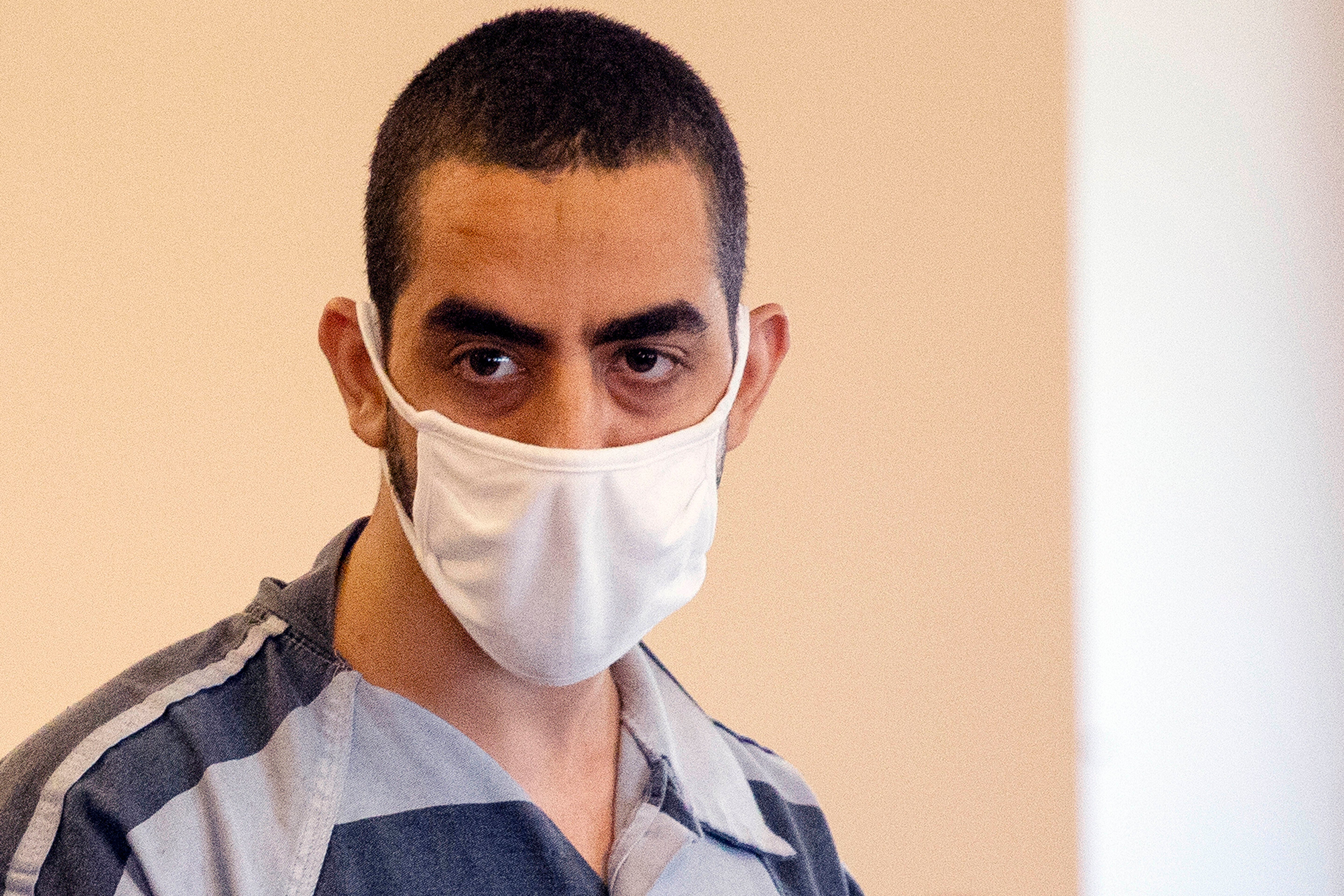Salman Rushdie's alleged assailant won't see author's private notes before trial
A New York judge has ruled that author Salman Rushdie does not have to turn over private notes about his stabbing to the man charged with attacking him

Your support helps us to tell the story
From reproductive rights to climate change to Big Tech, The Independent is on the ground when the story is developing. Whether it's investigating the financials of Elon Musk's pro-Trump PAC or producing our latest documentary, 'The A Word', which shines a light on the American women fighting for reproductive rights, we know how important it is to parse out the facts from the messaging.
At such a critical moment in US history, we need reporters on the ground. Your donation allows us to keep sending journalists to speak to both sides of the story.
The Independent is trusted by Americans across the entire political spectrum. And unlike many other quality news outlets, we choose not to lock Americans out of our reporting and analysis with paywalls. We believe quality journalism should be available to everyone, paid for by those who can afford it.
Your support makes all the difference.Author Salman Rushdie does not have to turn over private notes about his stabbing to the man charged with attacking him, a judge ruled Thursday, rejecting the alleged assailant’s contention that he is entitled to the material as he prepares for trial.
Hadi Matar’s lawyers in February subpoenaed Rushdie and publisher Penguin Random House for all source material related to Rushdie’s recently published memoir: “Knife: Meditations After an Attempted Murder,” which details the 2022 attack at the Chautauqua Institution. Public Defender Nathaniel Barone said the material he sought contained information not available anywhere else.
“You could obtain it from the book,” Chautauqua County Judge David Foley told Barone during arguments Thursday, before ruling the request too broad and burdensome. Additionally, the judge said, Rushdie and the publisher are covered by New York’s Shield law, which protects journalists from being forced to disclose confidential sources or material.
Requiring Rushdie to hand over personal materials “would have the net effect of victimizing Mr. Rushdie a second time,” Elizabeth McNamara, an attorney for Penguin Random House, said in asking that the subpoenas be quashed.
Matar, of Fairview, New Jersey, pleaded not guilty to assault and attempted murder after being indicted by a Chautauqua County grand jury shortly after authorities said he rushed the stage and stabbed Rushdie as he was about to address about 1,500 people at an amphitheater at the western New York retreat.
Rushdie, 77, spent years in hiding after the Ayatollah Khomeini issued a fatwa, or edict, in 1989 calling for his death due to his novel “The Satanic Verses,” which some Muslims consider blasphemous. Over the past two decades, Rushdie has traveled freely.
Also Thursday, the judge rescheduled Matar’s trial from September to October to accommodate Rushdie’s travel schedule, and that of City of Asylum Pittsburgh Director Henry Reese, who was moderating the Chautauqua Institution appearance and was also wounded. Both men are expected to testify.
Jury selection is now scheduled to begin Oct. 15, District Attorney Jason Schmidt said.